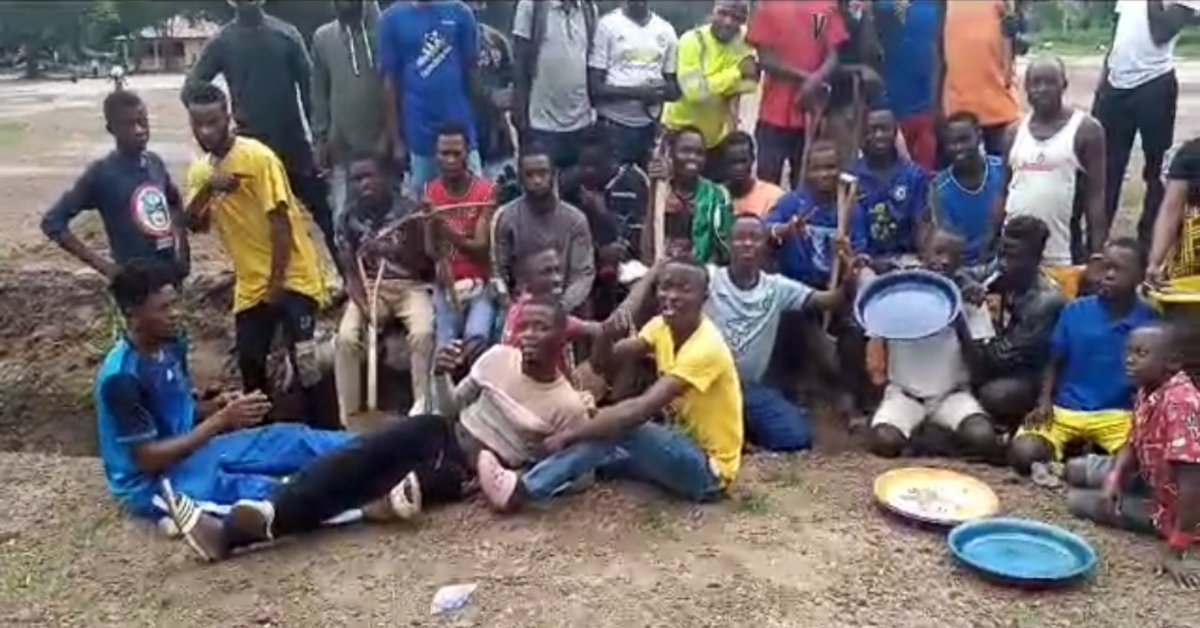In a vibrant effort to address the needs and aspirations of Kunike Sanda’s young population, the Kunike Sanda Chiefdom Youth Council has been actively working towards creating a brighter future for its community. Under the leadership of Mohamed Samuel Kargbo, the council has navigated through achievements and challenges in the 2022-2023 term.
Kunike Sanda, with nearly half of its population aged 15-35, plays a crucial role in the chiefdom’s socio-economic stability. Despite their importance, the youth have faced decades of marginalization, with gerontocracy leadership undermining their agency. Systematic social injustice and traditional barriers deny them a voice and identity, leading to grievances and involvement in negative activities. The Kunike Sanda Chiefdom Youth Council, led by Mohamed Samuel Kargbo, has made significant achievements but grapples with challenges in guiding youth activities and community development.
Achievements of the Kunike Sanda Chiefdom Youth Council 2022-2023:
Educational Empowerment: Conducted free tutorials and extra classes from pre-primary to SSS3.
Anti-Drug Campaign: Launched a campaign against drugs, particularly kush and related substances.
Community Cleanliness Initiative: Introduced “D Ton 4 Klin” project, conducting weekly clean-ups with minimal expenditure for the welfare of volunteering youth.
Girl Child Education Campaign: Launched “Give Them Pens Not Penis” project, advocating against girl child intimidation,
providing major school materials to 50 vulnerable pupils every term.
Peacebuilding Efforts: Conducted pre and post-election peace meetings involving district election management, political parties, stakeholders, and aspirants.
Leadership Skills Training: Organized monthly leadership skills training for 50 youth, covering civics education, youth in governance, roles and responsibilities of a voter, conflict management, etc.
Job Advocacy: Advocated for and secured jobs for youth within the community.
Partnership Building: Established relationships and coordinated activities with development partners to support youth initiatives.
Youth Office Construction: Work in progress for the construction of a youth office and youth center.
Educational Scholarships: Granted scholarships to 15 qualified youth at the Government Technical Institute of Masingbi.
Youth Engagement: Coordinated with various youth groups, informal networks, social clubs, film, music, beauty pageantry groups, bike riders union, and other youth corporates.
Support Programs: Provided support for youth and volunteer programs.
Conflict Resolution: Handled and solved youth issues from courts, chiefs, and police stations.
Health Support: Introduced free health maintenance for kush and other drug addicts, covering medical fees and aid with finances and clothes.
Policy Awareness: Analyzed and interpreted the 2020 National Youth Policies to stakeholders and youth.
Project Monitoring: Monitored and aided government/NGO development partners’ projects.
Financial Accountability: Opened a chiefdom youth bank account at the Yoni Community Bank in Masingbi (Account Number: 3203164).
Educational Empowerment: Purchased two books on local taxes and donated them to the youth of Kunike, motivating them to understand the importance of paying local taxes.
Challenges Faced by the Kunike Sanda Chiefdom Youth Council 2022-2023:
Limited Involvement in Administrative Development Planning: The council faced challenges in being actively involved in the chiefdom’s administrative development planning and implementation.
Lack of Sponsors: A dearth of government/NGO sponsors in terms of motivation, materials, and technical/financial support.
Absence of Developmental Dialogues: Zero developmental dialogues with the Ministry of Youth Affairs and District Youth Council.
Low Input of Youth Council Members: Executive members faced challenges in contributing actively to the running of youth activities.
Resistance to Youth Policies: The chiefdom administration showed resistance to accepting and implementing youth policies, including having all youth heads aged between 15-35.
Monopolization of Resources: Resources provided by UNDP through the Ministry of Youth Affairs were monopolized by a few stakeholders.
Exclusion from Development Committee: Lack of involvement of youth in the chiefdom development committee.
Limited Stakeholder Input: Key stakeholders had low participation in youth engagements and sustainable development projects within the chiefdom.
The Kunike Sanda Chiefdom Youth Council, acknowledging both its successes and challenges, remains steadfast in its commitment to empowering and uplifting the youth of Kunike Sanda for a brighter future.





 2 Comments
2 Comments









Comment(s)
Disclaimer: Comments expressed here do not reflect the opinions of Sierraloaded or any employee thereof.